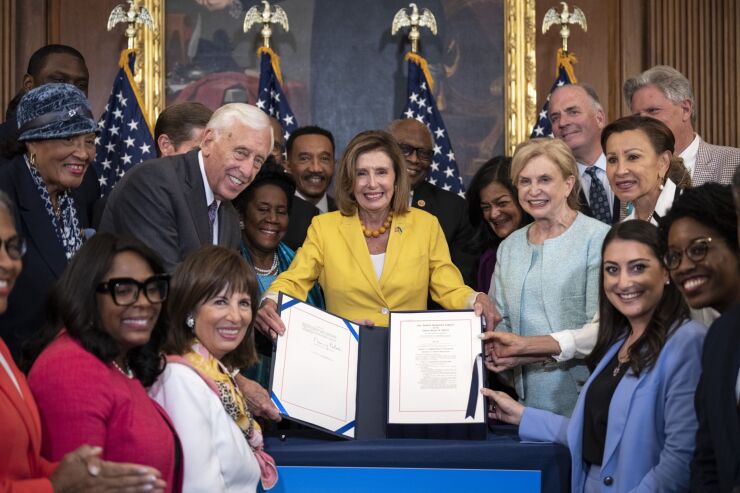The Inflation Reduction Act of 2022 will provide almost $80 billion to the Internal Revenue Service during the next 10 years to support a variety of expanded functions, including an increase in enforcement efforts.
Understandably, there is both hope and concern among practitioners: hope that the increased funding will result in a smoother, more efficient process in communicating and solving issues with the IRS, and concern that it may result in a more heavy-handed approach to enforcement.
The additional funding has the potential to vastly improve and even transform the U.S.'s tax administration system, according to Roger Harris, president of Padgett Business Services. "However, we also understand that this increased funding has become a politically divisive and at times misunderstood issue, and believe that the IRS must be both transparent and strategic to ensure the funding is used in a manner that enhances the experience of law-abiding taxpayers," he wrote in a letter to IRS commissioner Charles Rettig on Aug. 16, 2022.
"Throughout the COVID pandemic, we have seen firsthand the many challenges faced by the IRS and the resulting negative impact on taxpayers, including massive backlogs, delayed refunds and credits, unanswered telephones, and inaccurate notices being sent out," he stated.
"In recent weeks, there has been a high level of concern and fear expressed by some regarding the increased funding for IRS enforcement that is part of the Inflation Reduction Act," he wrote. "Of course, no taxpayer likes to be audited, but for our voluntary tax system to function properly, an appropriate level of enforcement is necessary."
Harris noted that the IRS has been tasked with distributing billions of dollars to individuals and businesses through the tax system, attracting many criminals. "Enforcement to catch these bad actors should not be controversial; in fact, it should be encouraged. But there is a more basic reason enforcement is needed. Every taxpayer that files their tax return in April and pays the tax they owe expects other taxpayers to do the same. If that basic belief goes away, our entire tax system could suffer. We believe that enforcement to reinforce the concept of fairness for each taxpayer should not be controversial."
"However, Padgett also believes that it is incumbent on the IRS to reassure the public that the funds will be spent in an efficient and ethical manner that improves the taxpayer experience and does not increase the burden on the vast majority of Americans that pay their taxes," he continued. "Most Americans want to stay in compliance with their taxes but need an IRS that can respond to their correspondence, answer their phone calls, and process their payments in a timely manner."
In much of the commentary on the act, any kind of enforcement is just deemed to be negative, Harris observed. "The reality is that we need the right kind of enforcement because it's a voluntary tax system," he said.

"The idea that any enforcement is bad needs to be rebutted," Harris said. "But enforcement should be based on protecting the integrity of our voluntary tax system, and doing it at the minimum required to do so."
Meanwhile, the first priority of the IRS should be improving taxpayer service to help restore confidence in the tax system, Harris said: "Taxpayers and practitioners deserve to have their phone calls answered in a timely manner, to speak to qualified people, to have their submissions processed quickly and accurately, and to use technology that is current and on par with private sector standards."
The funding for technology updates and administrative improvements should make it easier for tax professionals and individual taxpayers to communicate with the IRS, agreed Kevin Matthews, an accounting professor at George Mason University's School of Business.
"While these changes are critical, they are overshadowed by the much larger investment in enforcement, which will be used to dramatically increase the number of office and field examinations," he said. These two types of audits are more costly and time consuming than the IRS's automated correspondence audit, so Matthews believes they will primarily target businesses and higher-income individuals to offset the cost.
"The 15% corporate minimum tax and excise tax on stock buybacks are designed to target corporations and the wealthiest Americans to ensure they are paying their fair share," he added. "The stock buyback tax will further this goal, but the true effect of the corporate minimum tax won't be known until the IRS determines how the policy will be enforced in practice."





